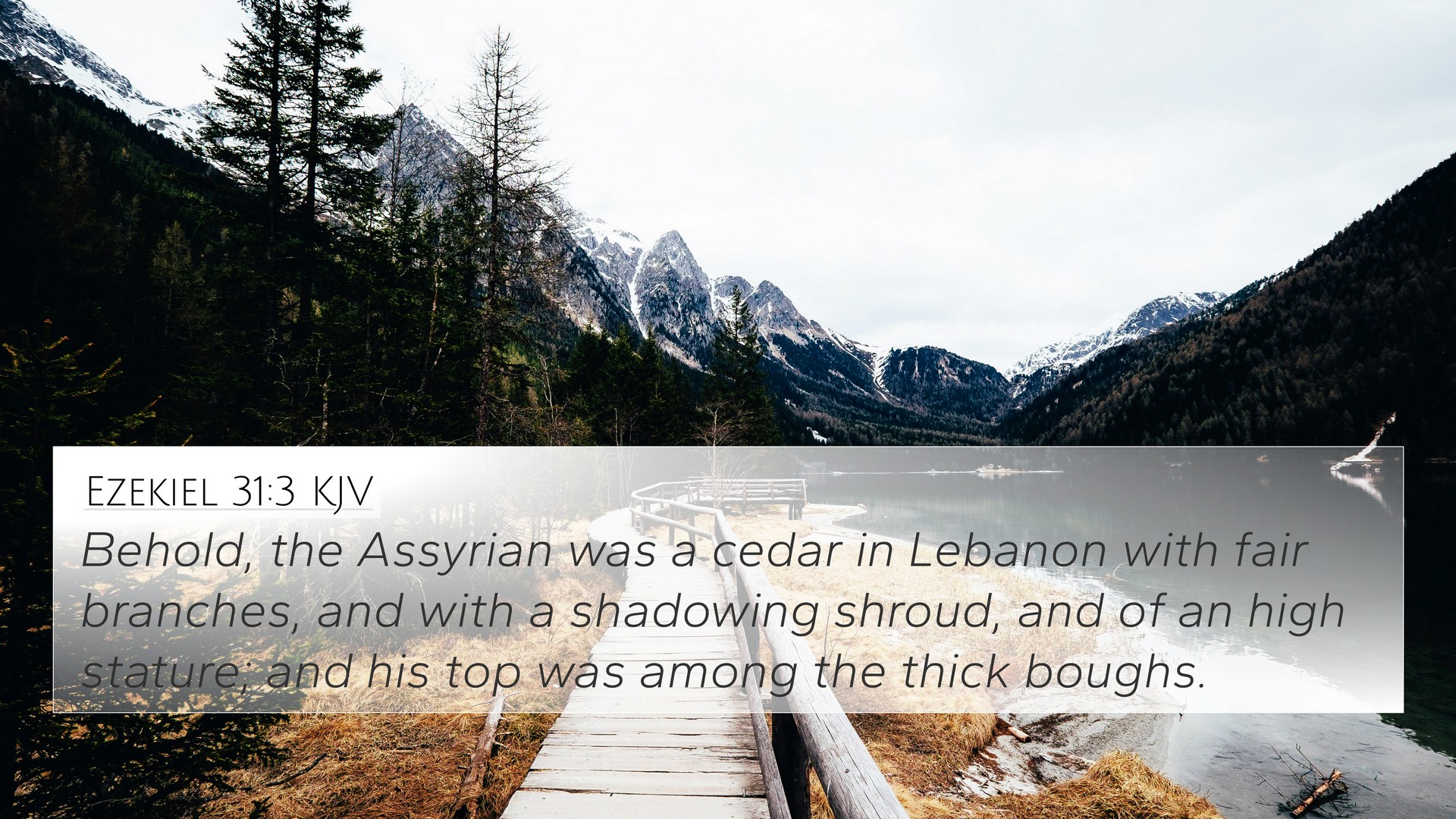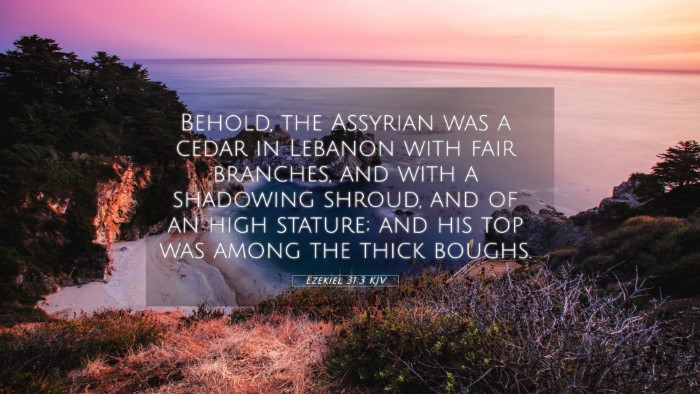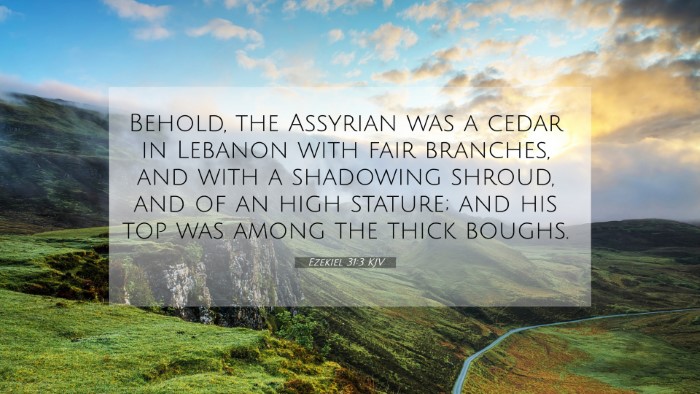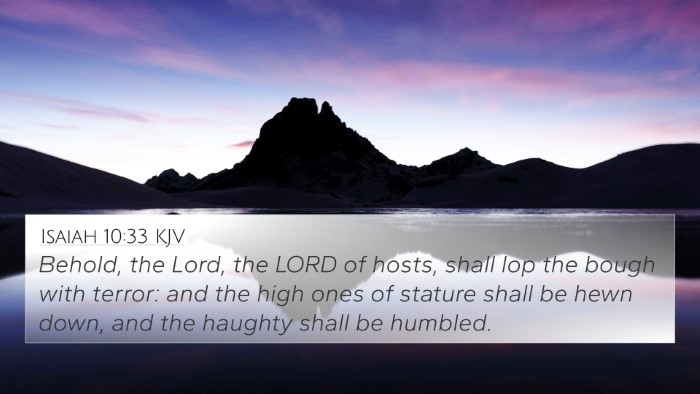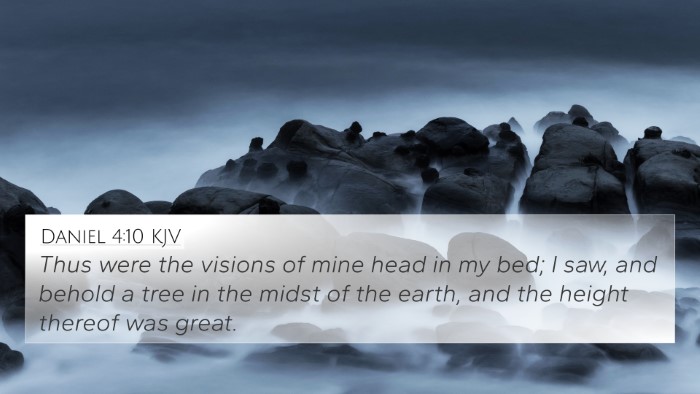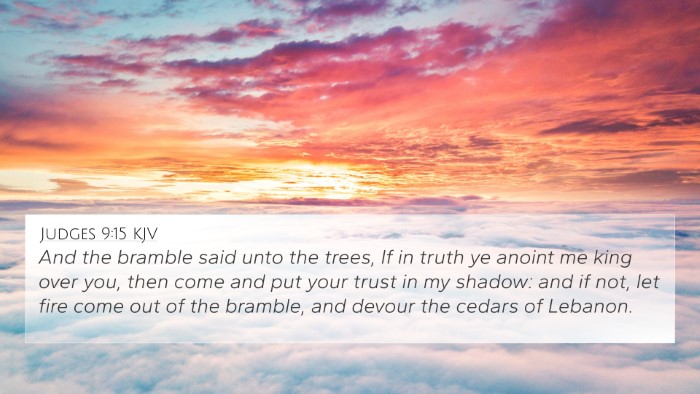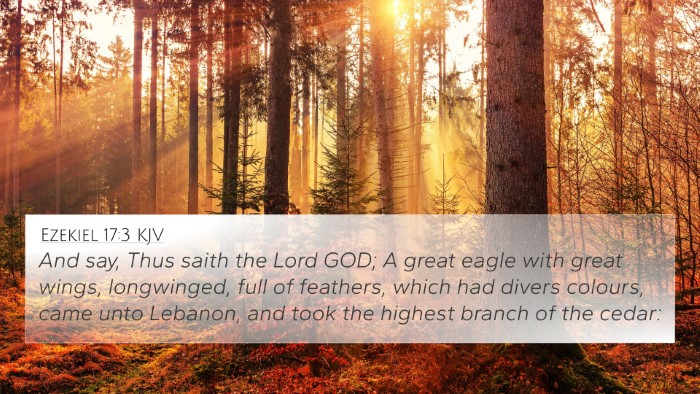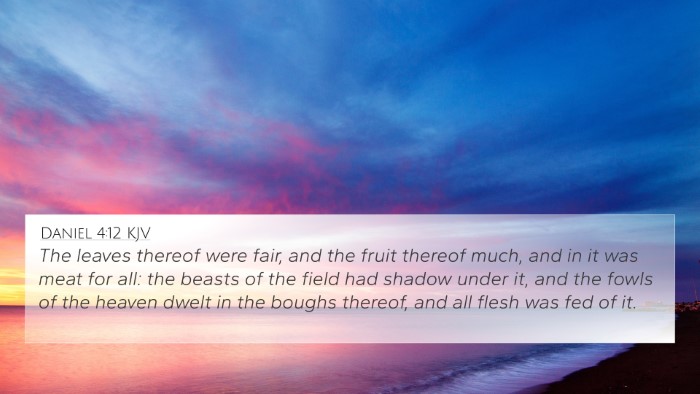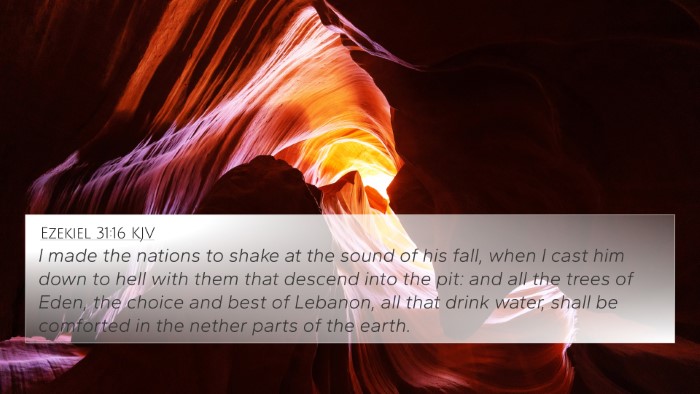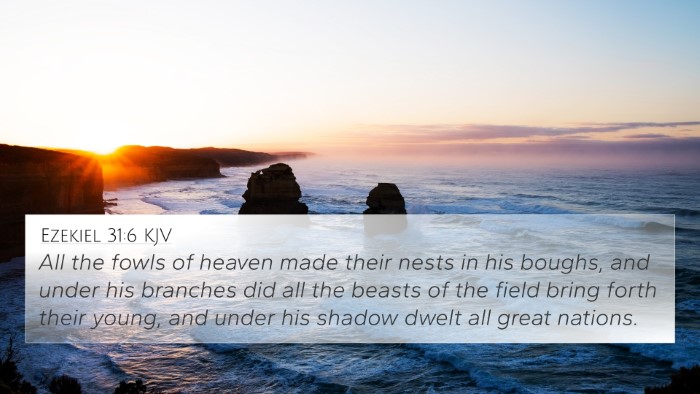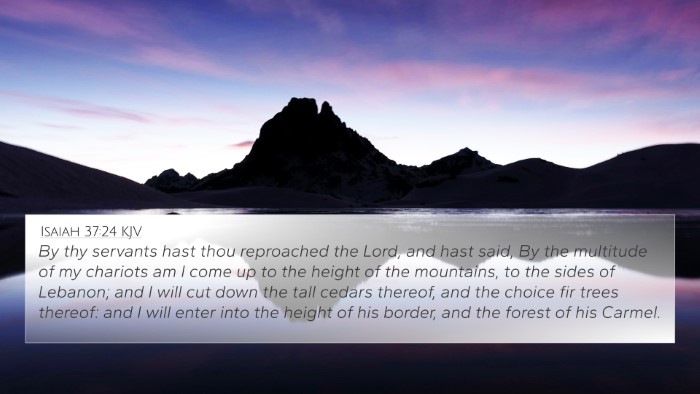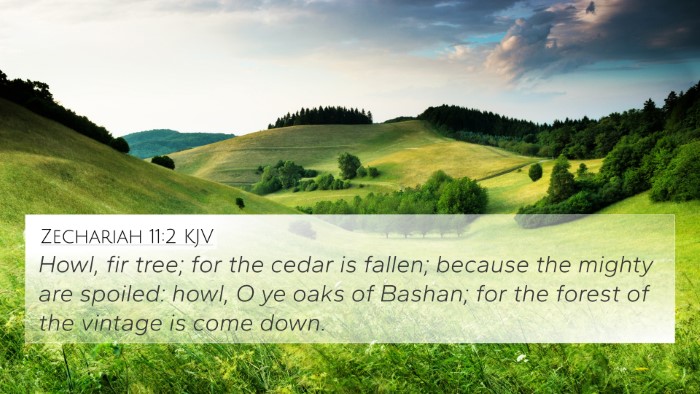Ezekiel 31:3 - Summary and Interpretation
Bible Verse: Ezekiel 31:3
The verse states:
"Behold, the Assyrian was a cedar in Lebanon with fair branches and with a shadowing shroud, and of a high stature; and his top was among the thick boughs."
Meaning and Interpretation
Ezekiel 31:3 uses the imagery of a great cedar tree to symbolize the Assyrian empire, which was noted for its greatness and strength. This commentary combines insights from various public domain sources.
Insights from Public Domain Commentaries
- Matthew Henry: He emphasizes the grandeur and pride of the Assyrian nation. The reference to the cedar tree, often a symbol of strength and stability, illustrates their power and influence. Henry connects this portrayal to the eventual downfall of Assyria, suggesting that pride leads to destruction.
- Albert Barnes: Barnes elaborates on the significance of the cedar tree. It represents not just physical strength but also the might and influence of Assyria over other nations. He notes that God's judgment falls on such prideful entities, indicating that even the strongest can fall.
- Adam Clarke: Clarke highlights the luxurious environment of Lebanon, known for its towering cedars, to showcase the exalted status of Assyria. He comments on the typology of Assyria as a symbol of worldly empires that rise and fall, ultimately serving God’s purposes.
Connected Themes and Cross-References
This verse can be linked to several other scriptures that discuss the themes of pride, downfall, and God's sovereignty over nations:
- Isaiah 10:34: Talks about the downfall of the tall trees, drawing a parallel to Assyria's demise.
- Daniel 4:10-12: The vision of a great tree that is cut down, which can be compared to the Assyrian dominion.
- Jeremiah 22:23: References the cedars and their importance, relating to high stature and pride.
- Ezekiel 17:22-24: Also uses trees to depict Israel’s restoration, contrasting Assyrian pride.
- Psalm 37:35: Describes the wicked flourishing like trees, correlating with the troubling rise of Assyria.
- Proverbs 16:18: Offers wisdom on pride preceding a fall, relevant to Assyrian pride.
- Zephaniah 2:13: Discusses the judgment of great nations, including Assyria.
Thematic Connections in the Scripture
Cross-referencing Bible texts reveals that Ezekiel 31:3 fits within a larger narrative about the rise and fall of empires, the transitory nature of worldly power, and God’s control over history.
Such thematic connections can serve as tools for deeper biblical understanding and thematic studies:
- Bible Concordance: Facilitates finding related verses quickly.
- Bible Cross-Reference Guide: Provides structured ways to explore interconnections.
- Cross-Reference Bible Study: Encourages comprehensive explorations of biblical themes.
How to Utilize Bible Cross-References
For those exploring the Bible further, methods of cross-referencing can be highly effective for enhancing understanding:
- Identify connections between Old and New Testament verses.
- Look into detailed cross-references for specific themes.
- Use Bible reference resources to trace similar themes across books.
- Conduct a comparative study of Pauline epistles in relation to larger historical narratives.
Conclusion
Ezekiel 31:3 serves as a powerful reminder of the might of empires that, like mighty cedars, can be brought low. This verse, through cross-referencing and thematic study, provides rich opportunities for understanding the nature of divine judgment, the significance of humility, and God's ultimate authority in the world.
